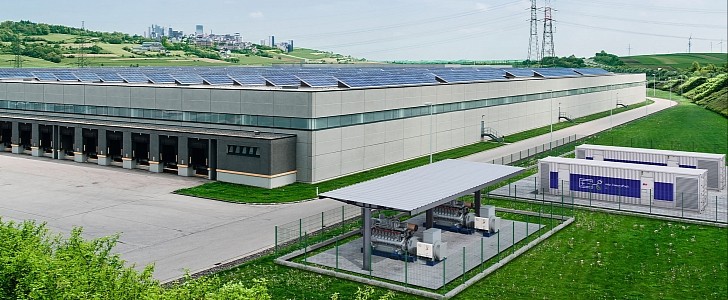The Indo-French Workshop on Clean and Sustainable Energy Technology (INFINITE) was inaugurated at the National Physical Laboratory, New Delhi, by Dr. S. Chandrasekhar, Secretary, Ministry of Science and Technology.
Using the Thar Desert as a solar energy production area, India is estimated to generate up to 2100 GW of solar energy. Dr. S. Chandrasekhar
partnership between France and others With G20 countries, green energy production, storage, and conversion are needed, especially for green hydrogen, green ammonia, and energy storage infrastructure, says Dr. N. Kalaiselvi.
India calls for closer cooperation with France on clean energy and highlights New Delhi’s plans to switch to green electric cars and hydrogen power. India’s renewable energy sector is fourth among the world’s most attractive renewable energy sectors, with solar energy the country’s most abundant source of renewable energy. Dr. S. Chandrasekhar, Secretary, Ministry of Science and Technology, Government of India, said at the inauguration of the Indo-French Workshop on Clean and Sustainable Energy Technology (INFINITE) at the CSIR National Physical Laboratory in New Delhi said that it has set a target of installing 100 GW of solar power by 2022. He added that by using the Thar Desert as a solar power site, India is estimated to generate up to 2,100 GW of solar power.
Dr. Chandrasekhar referred to another government initiative. India’s National Biofuel Policy aims to achieve a 20 percent ethanol blend in gasoline and a 5 percent biodiesel blend in diesel by 2030.
Dr. Chandrasekhar pointed out that the focus is on CO2 capture and storage, and NITI Aayog estimates that India’s total geological CO2 capacity is theoretically 400–600 Gt, taking into account depleted oil and gas reserves, non-minable coal, veins, salt waters, basalts, etc. He said that the government has developed policies, programs, and a free environment to attract foreign investment and quickly bring the country into the renewable energy sector.
The Department of Science and Technology is also interested in encouraging international cooperation in clean energy research. “I hope that the processes and technologies discussed in this workshop will have enormous potential to mitigate the effects of climate change and reduce greenhouse gases,” added the secretary.
In his address, Dr. N. Kalaiselv, Director General, CSIR, and Secretary, DSIR, said that India needs a huge boost in the production of renewable energy technologies and infrastructure. He emphasised the need for partnership with France and other G20 countries to produce, conserve, and transform green energy, especially green hydrogen, green ammonia, and energy storage infrastructure. He added that India and France have a long history of bilateral scientific cooperation, especially to increase scientific research in clean and renewable energy sources.
Lady. Antoine Petit, CEO of the French National Center for Scientific Research (CNRS), expressed appreciation for the strong partnership between the two countries and emphasised the importance of cooperation to achieve a sustainable energy transition through new bilateral programs.
Prof. Director of CSIR-CIMFR Arvind Kumar Mishra pointed out that this seminar is broadly focused on bringing together academic and industrial experts from France and India to develop cooperation in clean and sustainable energy. He said that both parties should identify specific research problems and goals and find partners to develop new knowledge, joint IPs, and concrete results in biomass energy, coal to methanol/clean fuels, solar energy, hydrogen, energy storage, and CO2 capture and storage. We need to share our experiences, explore new ideas, and try to think differently.
The purpose of the workshop is to bring together experts, researchers, decision-makers, and industry leaders from both countries to exchange information, ideas, and best practises on the development and implementation of clean and sustainable energy technologies. The workshop will include various presentations and discussions on various topics related to solar energy, hydrogen energy, carbon footprint use and storage, electrochemical energy storage, and clean fuels.
The event is jointly organized by the CSIR’s Central Institute for Mining and Fuel Research (CIMFR), Dhanbad, and the French National Center for Scientific Research (CNRS), France, and supported by the Indo-French Center for Advanced Research (CEFIPRA).
Prof. Venugopal Achanta, Director, CSIR-NNPL welcomed the guests, invitees, and delegates, and Prof. Arvind K. Mishra, Director, CSIR-CCIMFR delivered the opening remarks.
Before the workshop, the strengthening of cooperation in clean energy research and development and the preparation of new R&D programmes between countries were also discussed in the bilateral meeting of the CEO, CSIR, and CNRS. The meeting was also attended by heads of several CSIR laboratories and other French representatives from CEFIPRA, CNRS, CEA, and the French Embassy in India, New Delhi.
The INFINITE workshop provides a platform for experts and stakeholders from both countries to exchange information, identify areas of cooperation, and explore new opportunities for cooperation in the field of clean and sustainable energy technology. The arrangement should be successful, and the discussions and collaborations during the workshop will predictably lead to concrete results in the near future.
The bilateral workshop is coordinated by Dr. R. Ebhin Masto, CSIR-CCIMFR Principal Scientist, India, and Dr. Abdelilah Slaoui, Deputy Director of Energy Research, CNRS, France.





Leave a Reply